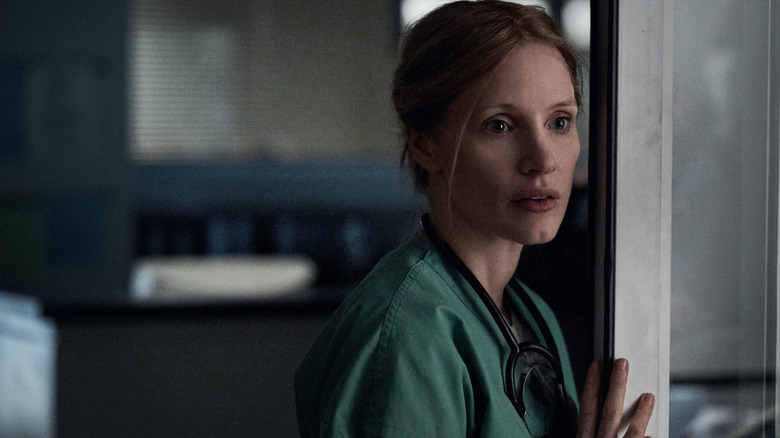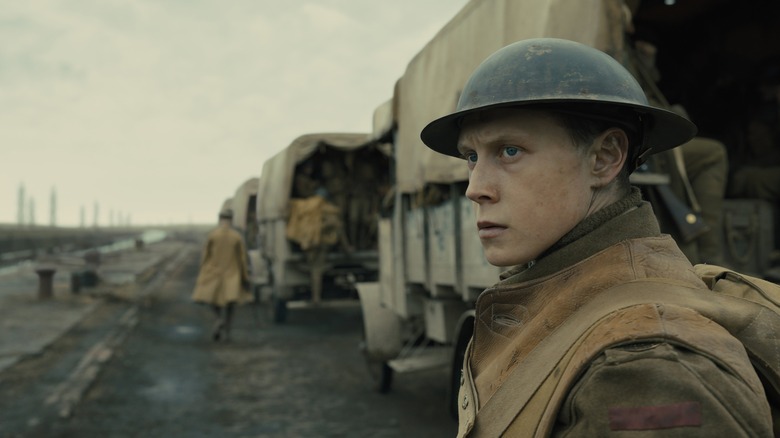1917 And The Good Nurse Screenwriter's Favorite Trick Is To Cut Dialogue [Exclusive]
Poll any group of aspiring filmmakers about what the most important part of a script is and chances are one of the most common responses you'll get will have something to do with the dialogue. There are countless examples of successful writer/directors who've clearly made this aspect of storytelling into a priority, turning the words that their characters say and how the actors deliver them into an integral feature of their personal trademark. Great dialogue can help elevate what's on page and make a prospective script stand out even more to those reading it. Bad dialogue can have an equal effect in the exact opposite direction, however, sticking out like a sore thumb and threatening to overshadow the rest of the story.
So when any artist comes out and states that perhaps we place a little too much emphasis on words, that should speak volumes. That's exactly what writer Krysty Wilson-Cairns, writer of the upcoming Netflix film "The Good Nurse" and most well-known for her work on the Sam Mendes war film "1917" and Edgard Wright's "Last Night in Soho," had to say in a recent interview with /Film's Jack Giroux. With such talented performers at her disposal, sometimes dialogue can be rendered unnecessary.
"For me, from '1917' all the way through, I've been so fortunate, and a lot of what I learn is that you can take so much of the dialogue out and you can just let the actors act, because they're f***ing great at what they do. They can do it with their bodies, with a look, which would take me pages and pages, and they can do it in a way that's so much more immediate. What is it they say? 90% of communication is body language, non-verbal. Real actors understand that and know that."
'It's so liberating'
There's a reason why filmmaking is always referred to as an ongoing process. What might seem so crucial and invaluable on paper can suddenly be rendered inadequate or even entirely disposable when it comes time to actually film. Writers tend to experience this journey most viscerally, having to watch their precious screenplays change and evolve through each stage of production until arriving at something completely different than what they originally envisioned. For the lucky ones, this may result in a final product that's even better than they had intended.
Krysty Wilson-Cairns is certainly a star on the rise after her work on the Showtime series "Penny Dreadful," which ultimately led to credits on big-screen productions like "1917," "Last Night in Soho," and now this year's "The Good Nurse" (which /Film's Chris Evangelista reviewed here). In her conversation with /Film, Wilson-Cairns went on to describe how she actually enjoys telling the directors she collaborates with to cut entire lines of dialogue from the script.
"One of my favorite things to do on set is to go to the director, 'We don't need those lines.' It's so liberating. Sometimes there are lines I've spent 10 years on, and I really like those lines, but this is better. I mean, it is a real privilege. The big thing is let actors act. You don't need to write the 16-page scene; do it in two pages if you can, and let there be silence, let there be emptiness. Let there be this vacuum that people pour themselves into. I wish I'd known that when I was born."
As much as actors love to sink their teeth into a juicy monologue or trade quips, sometimes less really can be more.
"The Good Nurse" debuts on Netflix October 26, 2022.

